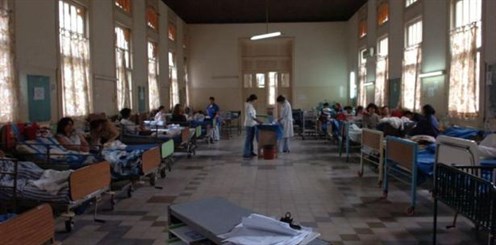In the 21st century, we finally need to tackle the gender gap in drug policy
By Werner Sipp, president of the International Narcotics Control Board (INCB), an independent, quasi-judicial body that monitors implementation of the UN international drug control conventions.
20 Mar 2017I will never forget the visit I made to the women’s outpatient treatment service at Pereira Rossell Hospital, in Montevideo, Uruguay, in November 2015. I was in the country in my capacity as president of the International Narcotics Control Board and had the chance to participate in a group therapy session with some of the drug-dependent women at the hospital.
Many of them spoke about how they had become estranged from their families and communities as a result of their drug dependence, some had been living on the streets; many held their children in their arms. I met Ana-Paula, a mother in her twenties, whose optimism and warmth I admired, given her ongoing struggle.
I was deeply moved by her story of how she had sought treatment for her coca paste dependence upon discovering she was pregnant. She realised she had lost control of her life and wanted nothing more than to have a healthy baby.

She had succeeded in not using coca paste for the past few months, found a place to live in a housing centre for women and a job — the money from which she entrusted to her friend for safe-keeping out of fear that she may be tempted to use it to buy coca paste again.
Her main concern now was raising her son and planning for his future, and she told us that coming to the treatment service had allowed her to regain control of her life.
Unfortunately, unlike Ana-Paula, many drug-dependent women do not have the opportunity to access treatment and shelter, or are prevented from doing so. All over the world drug-dependent women are ostracised from their communities and left without support.
Although women and girls account for one-third of global drug users, only one in five drug treatment recipients is female. Women who take drugs are often stigmatised and discriminated. For this reason the International Narcotic Control Board’s Annual Report for 2016 emphasises the need for drug policies and programmes that take women into account.
Click here to read the full article
If you have any comments please tweet us @idhdp or visit our facebook page
Doctors can lead the way to healthier drug policies – join IDHDP now
Share this on: